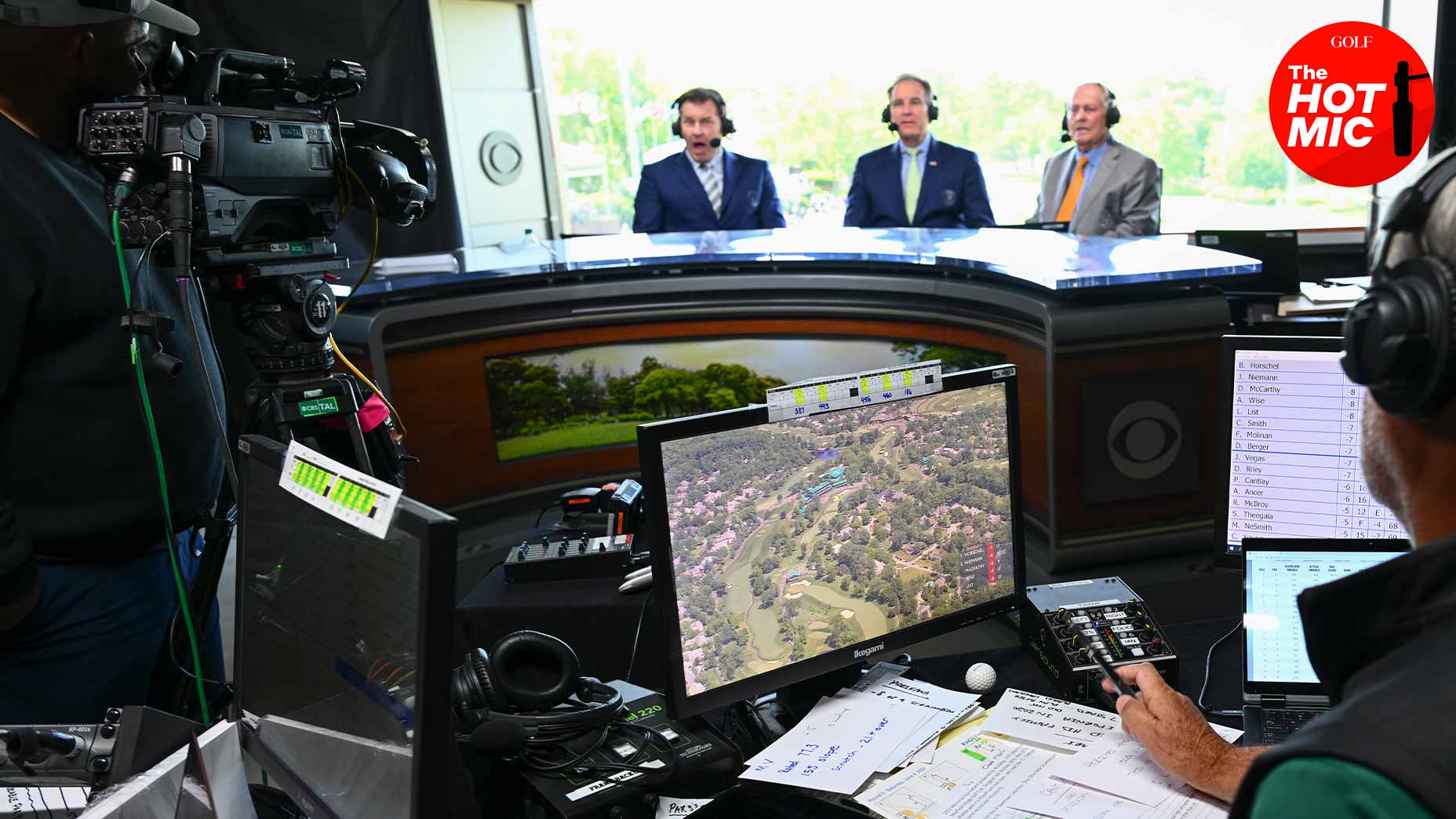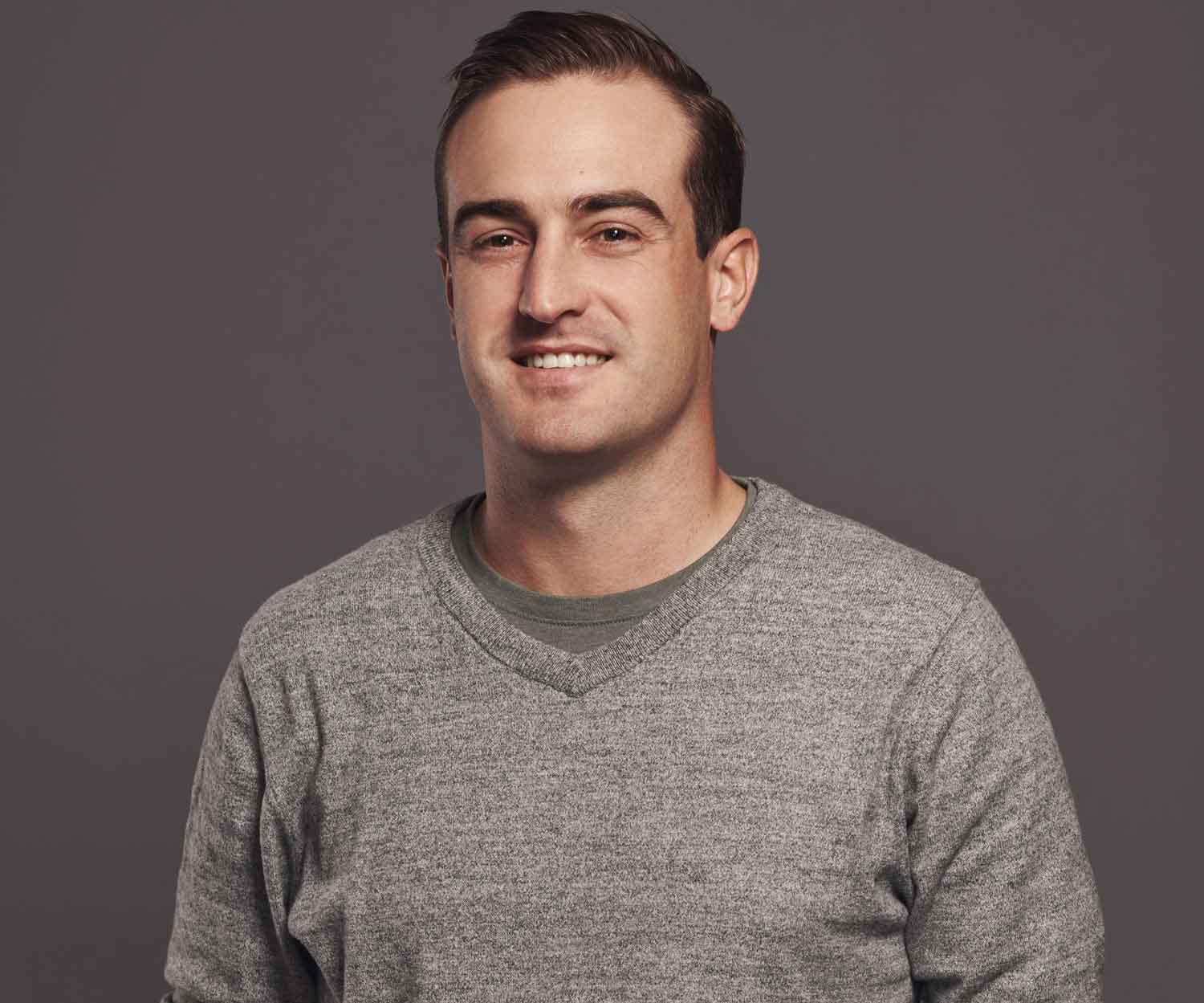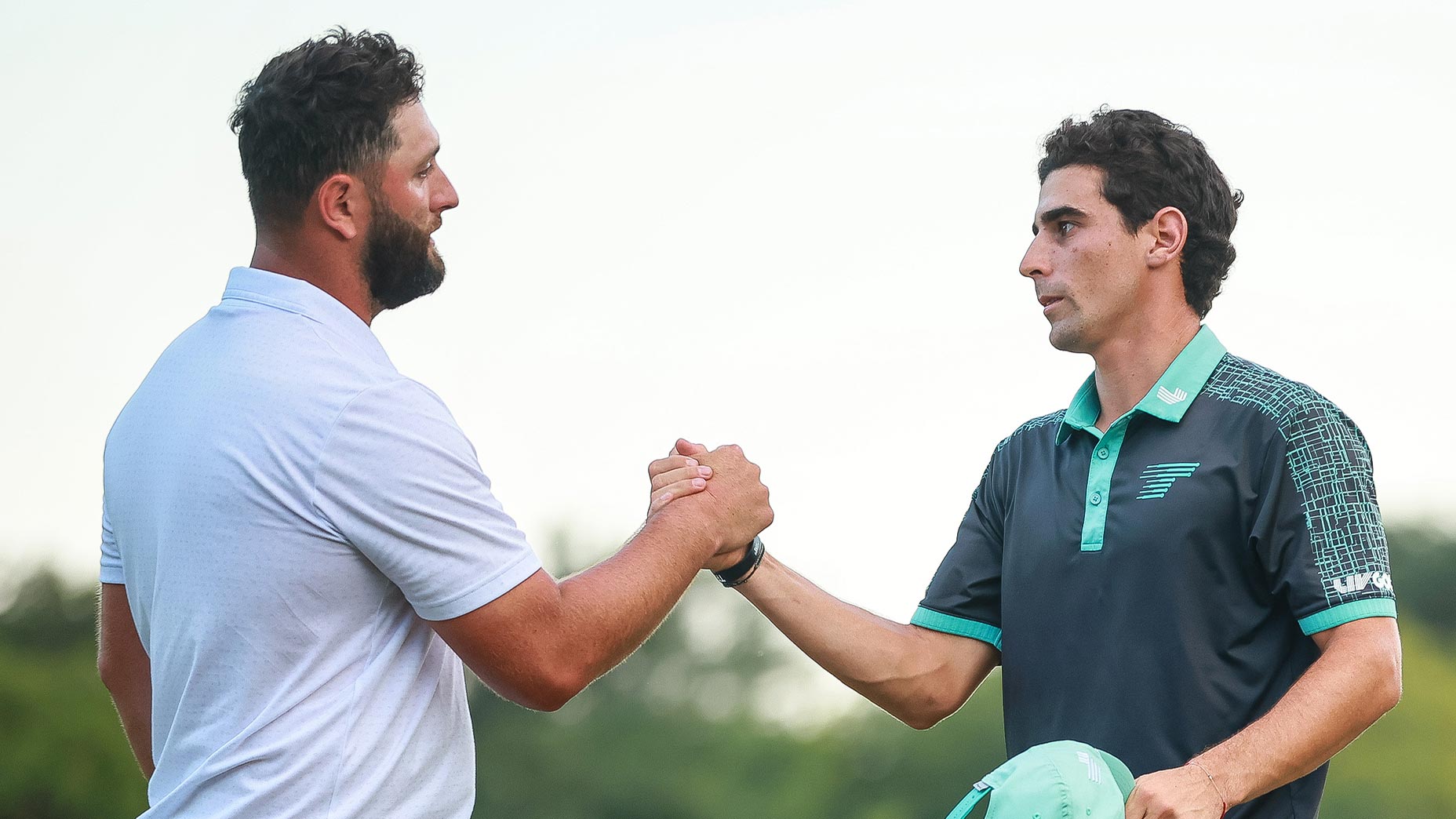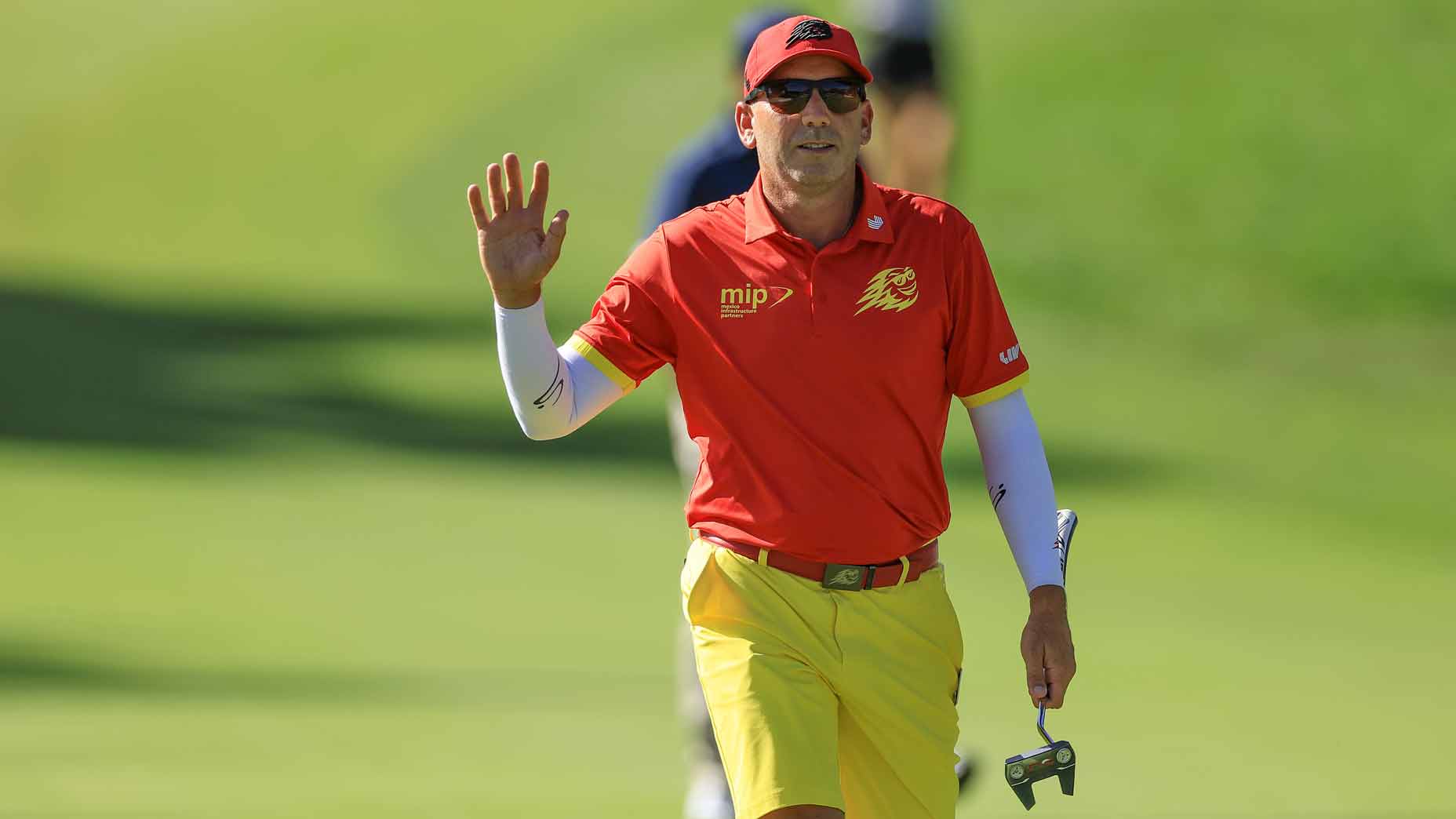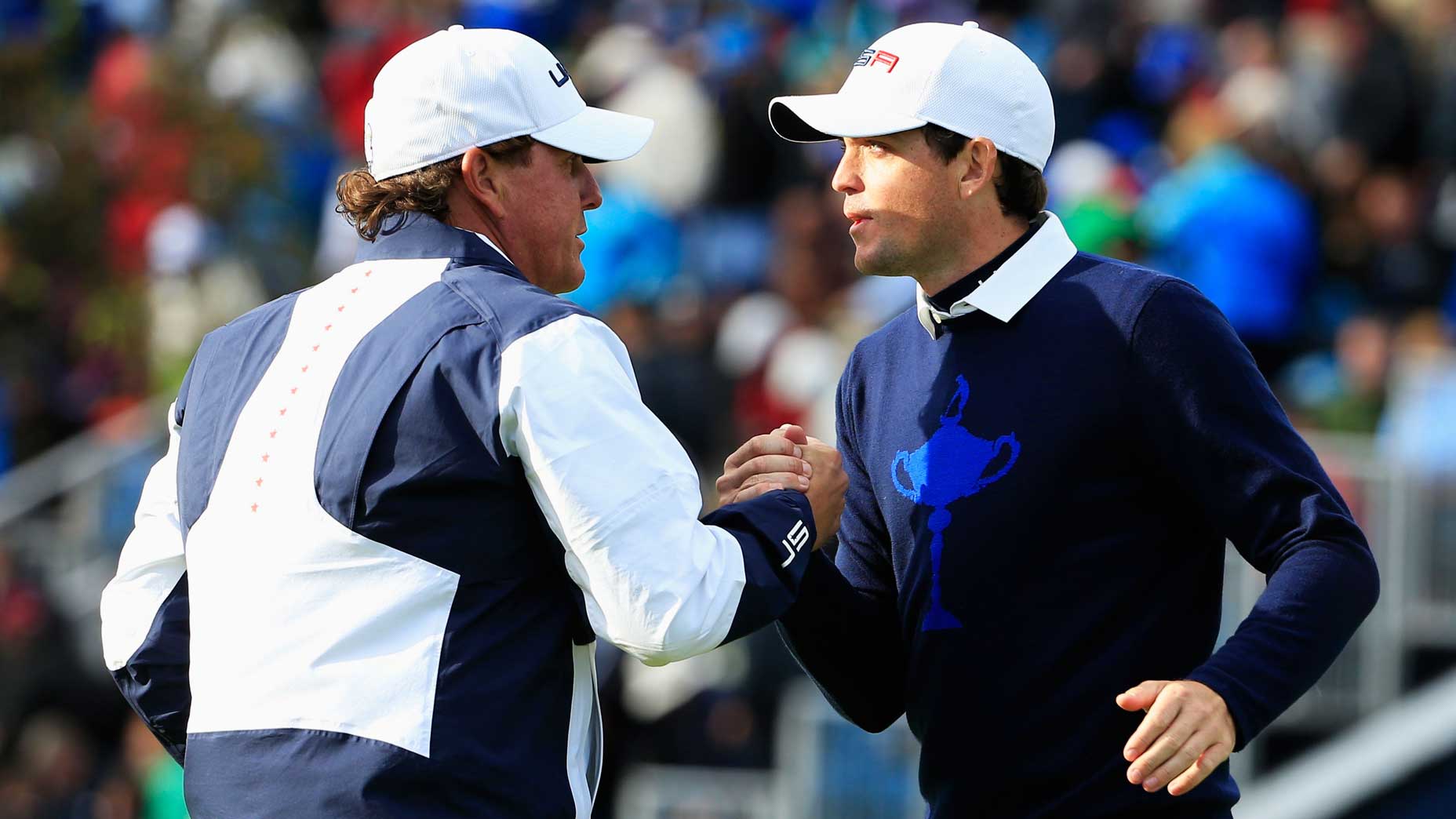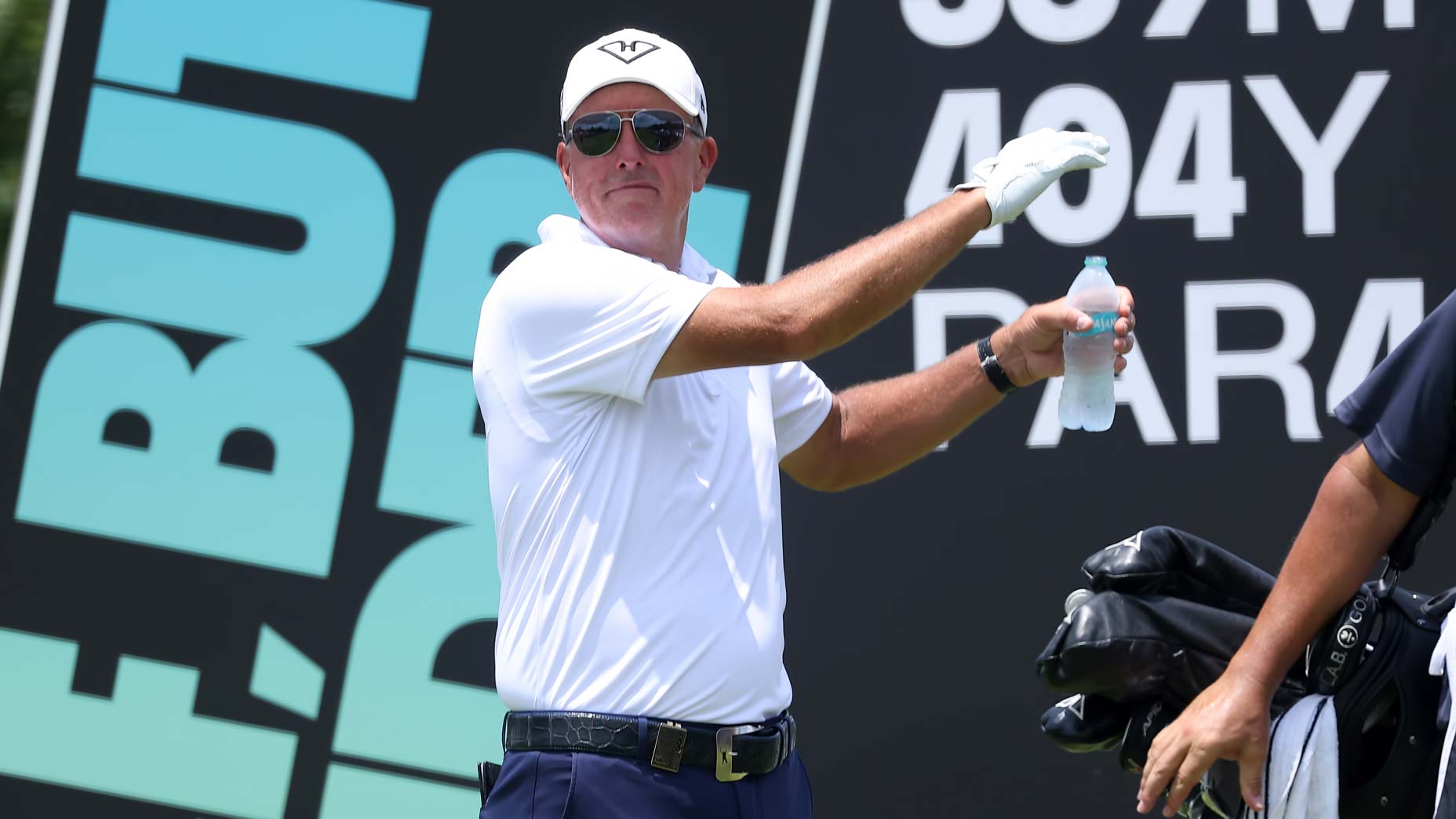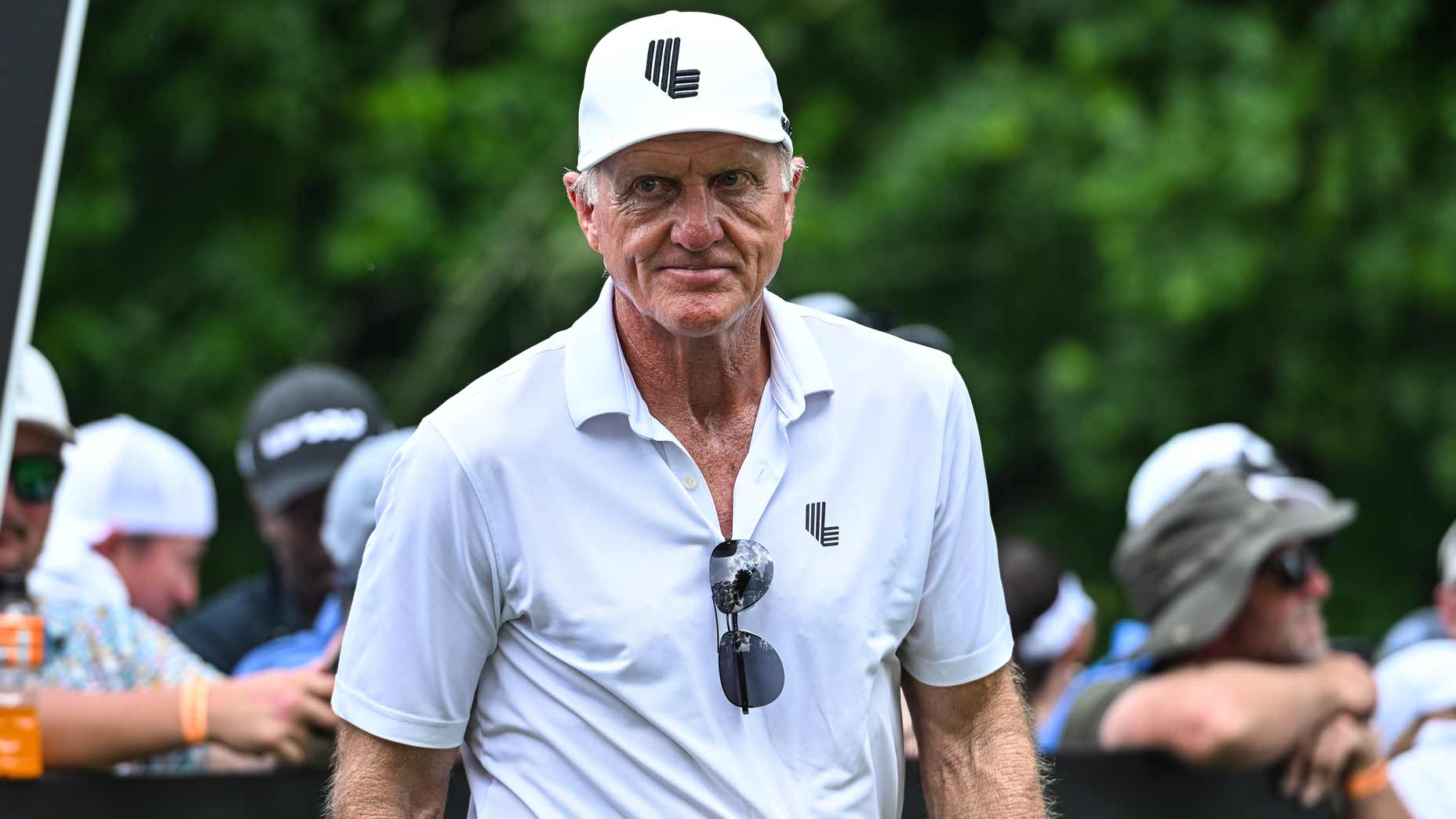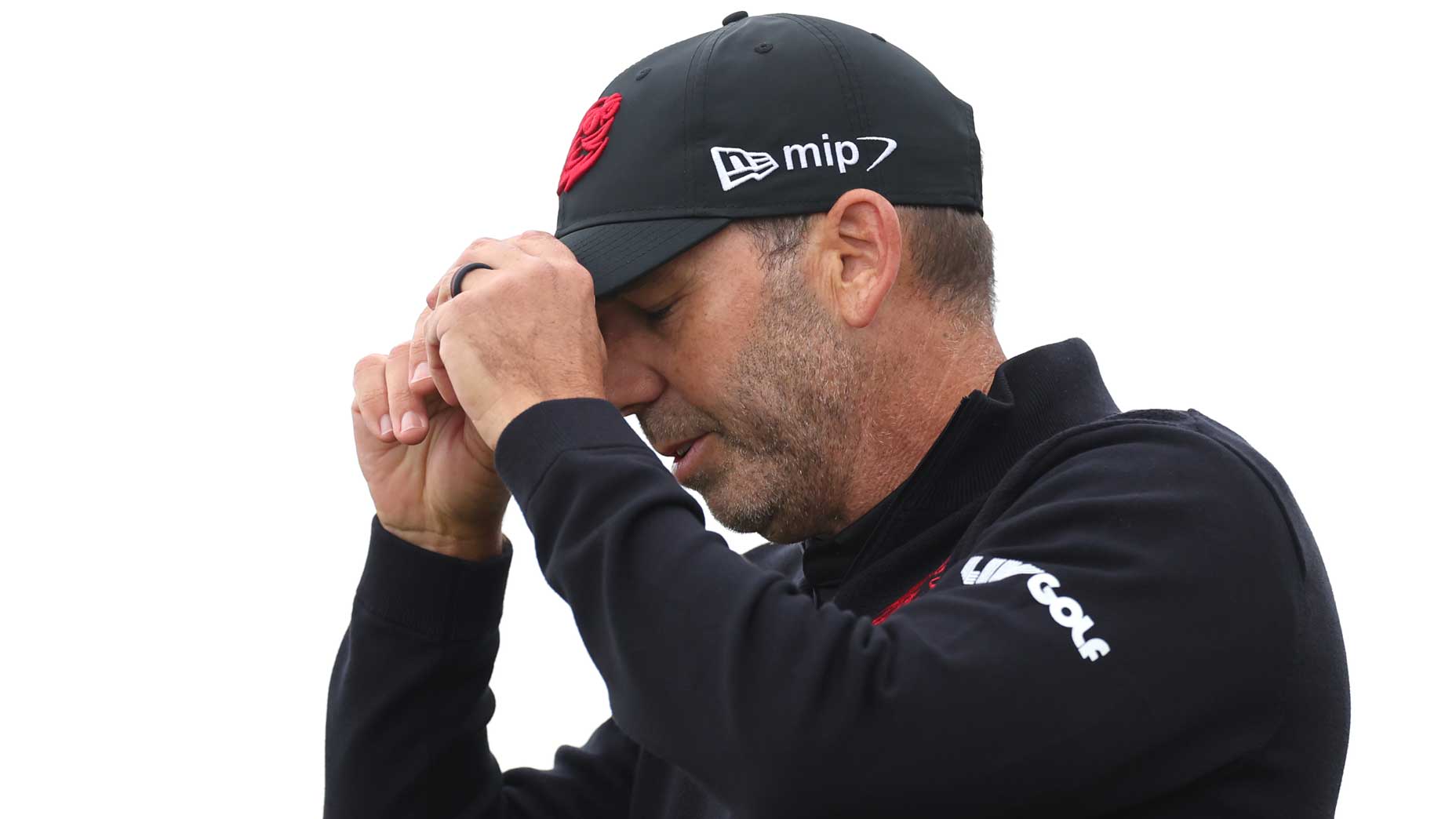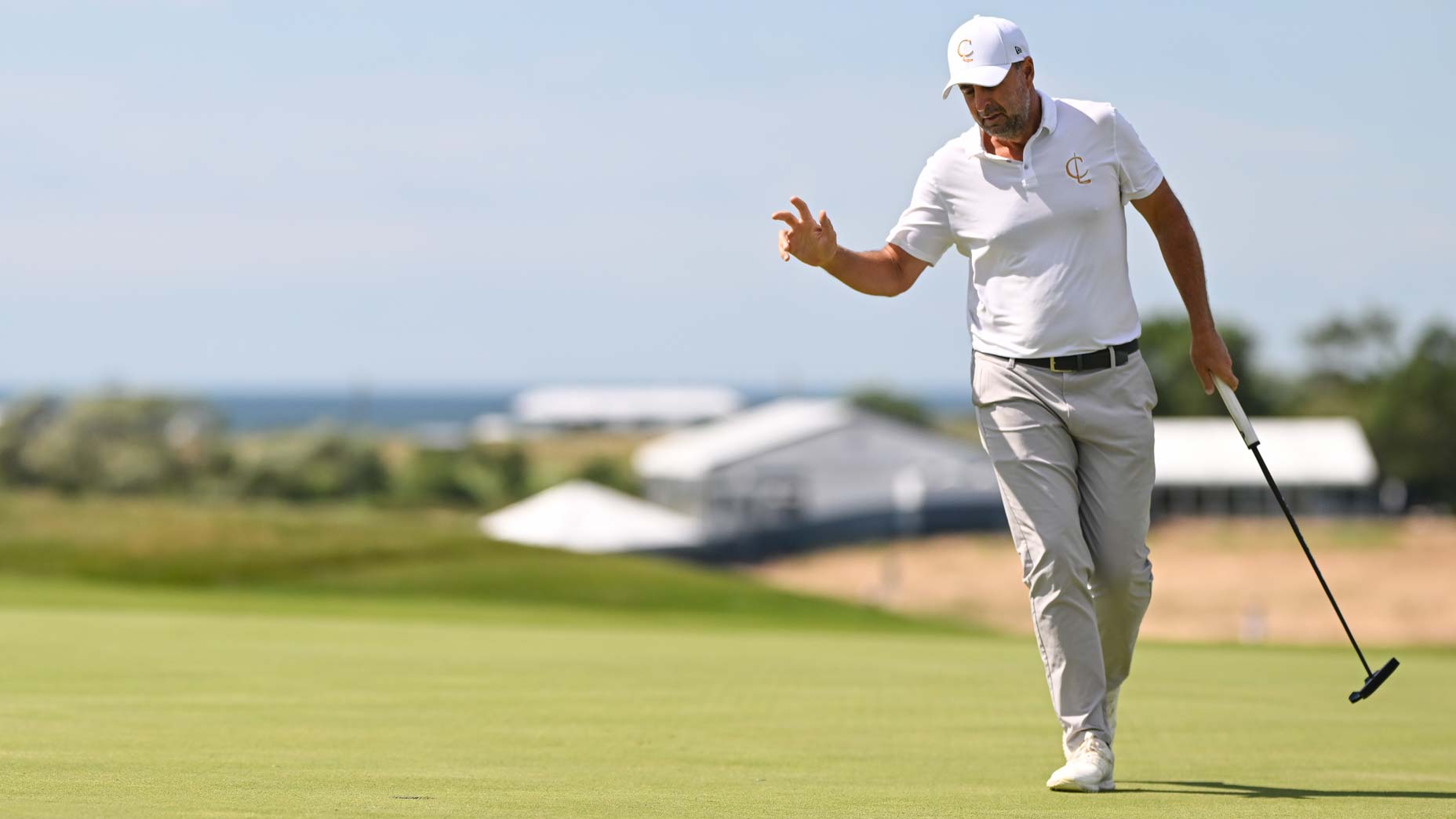LIV Golf’s latest legal issue? Its ownership
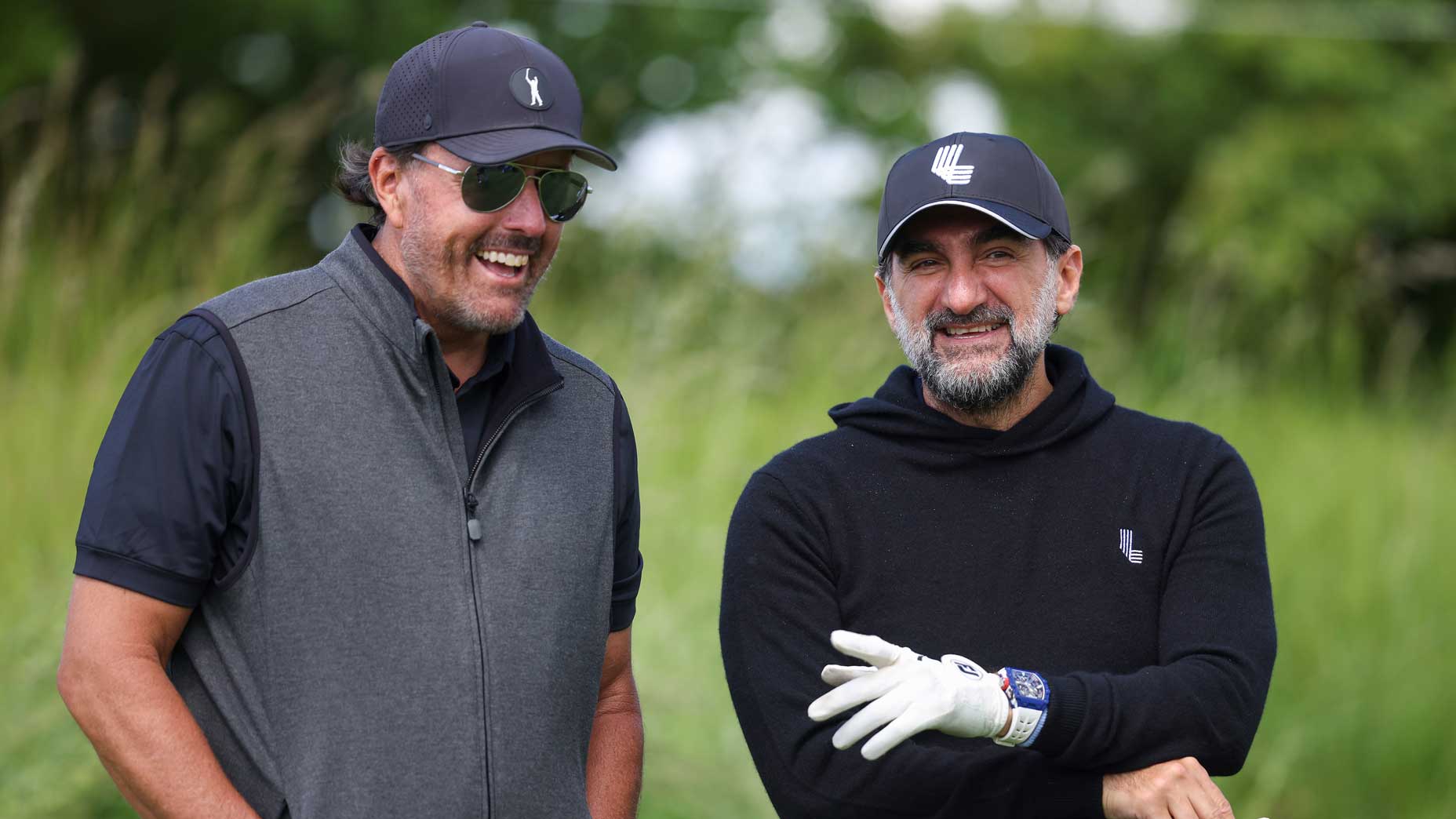
Phil Mickelson and Yasir Al-Rumayyan during the pro-am of LIV Golf's first event, in England.
Getty Images
It’s been a quiet winter for LIV Golf but not necessarily in the courtroom, where recent hearings between LIV and the PGA Tour have centered around a key topic: LIV Golf’s ownership and operations.
The antitrust suit is in the middle of its “discovery” phase, wherein each party compels documents and files subpoenas for deposition from its opposition and potentially unrelated parties. Hundreds of thousands of documents have been exchanged between the two sides thus far. That’s progress. For example, LIV Golf’s attorneys will have access to emails from more than 30 representatives of the PGA Tour. That’s Jay Monahan, Andy Pazder and dozens of other representatives who may have acted on behalf of the Tour in an anti-competitive way to LIV.
On the flip side there’s LIV, whose corporate structure is far less clear (and also shifting, as executives have left their posts in the last three months). While it was broadly known that the Public Investment Fund of Saudi Arabia was the majority owner of LIV Golf, only last week did it become clear that the PIF owns 93% of LIV. The PGA Tour has access to documents that spell out LIV’s governance and relationship with the PIF, referenced as the “Shareholder’s Agreement.” The Tour can also see information concerning LIV’s budgets and the levels of PIF consent required to conduct business activities. The majority of these documents have remained confidential, which LIV would prefer to keep that way, for obvious reasons.
Now, in any normal case playing out in an American courtroom, this type of document exchange could go smoothly. There could be no hiccups. Side A presents a list of figureheads from Side B they wish to obtain communications from. Side B agrees to some or all or none of that production and then either provides the communications or demands Side A (and perhaps a judge) narrow the scope of the requests. If dozens of employees of a sports league send multiple emails each day over the course of three years, the back-and-forth would create rooms full of documents. Determining the scope comes first.
The LIV-Tour suit has figured out most of that scope, too. “To the extent there’s appropriate discovery of the Public Investment Fund,” LIV attorney Robert Walters said in court on August 18, “we will find a way to cooperate with that.”
We have arrived at that point of theoretical cooperation, but with a late-March deadline rapidly approaching, a recent snag has come in the form of a non-party: the governor of the PIF, Yasir Al-Rumayyan. There is some resistance to typical subpoena exercises because there is disagreement about how much can be asked of Al-Rumayyan and the PIF.
At issue is how much business he has conducted in the States — the PIF has an office in New York City — and to what extent his appearances at LIV events in 2022 can be considered “commercial” activity.
At issue is how much Al-Rumayyan has acted on behalf of LIV — in communications with agents like Casey Wasserman and players like Bryson DeChambeau (both cited in recent Tour presentations), or negotiations with broadcasting executives. If he is playing a major role for LIV Golf, it seems theoretically easier to convince a judge to compel documents from him, despite him being a non-party tied to an international government.
Finally — and perhaps most importantly — is jurisdiction. Articles of Saudi law were recently presented to the court, and Al-Rumayyan himself issued a declaration that he could be subject to a 20-year prison stint if he were to disclose confidential government documents. Al-Rumayyan also stated that the PIF “does not have day-to-day control over LIV Golf Inc.,” which the PGA Tour is working to contend.
Too long, didn’t read? The PGA Tour wants believes there is more to learn about LIV Golf from Al-Rumayyan’s documents. They want to better understand LIV’s ownership and business structure. LIV Golf’s lawyers, along with legal counsel for the PIF and Mr. Al-Rumayyan, would like to limit the scope of that.
How do they do so? With a good, old-fashioned negotiation. The two sides have engaged in various discussions this week and were asked by a judge to come to an agreement by Wednesday. Counsel for the PIF and Al-Rumayyan laid out five conditions that would limit the production of documents. They’d prefer, citing Saudi law, that the PGA Tour narrows its requests to specifically agreed upon and analyzed topics. The Tour believes this will allow PIF to “cherry-pick the information it wishes to disclose,” and would leave the court to rule via the analysis of a “PIF-paid expert.”
Where does it leave us? At an “impasse” according to the Tour’s statement filed Thursday. According to Jodi Balsam, a sports law professor at Brooklyn Law School, we can expect a court order to declare a compromise that sits somewhere in the middle.

